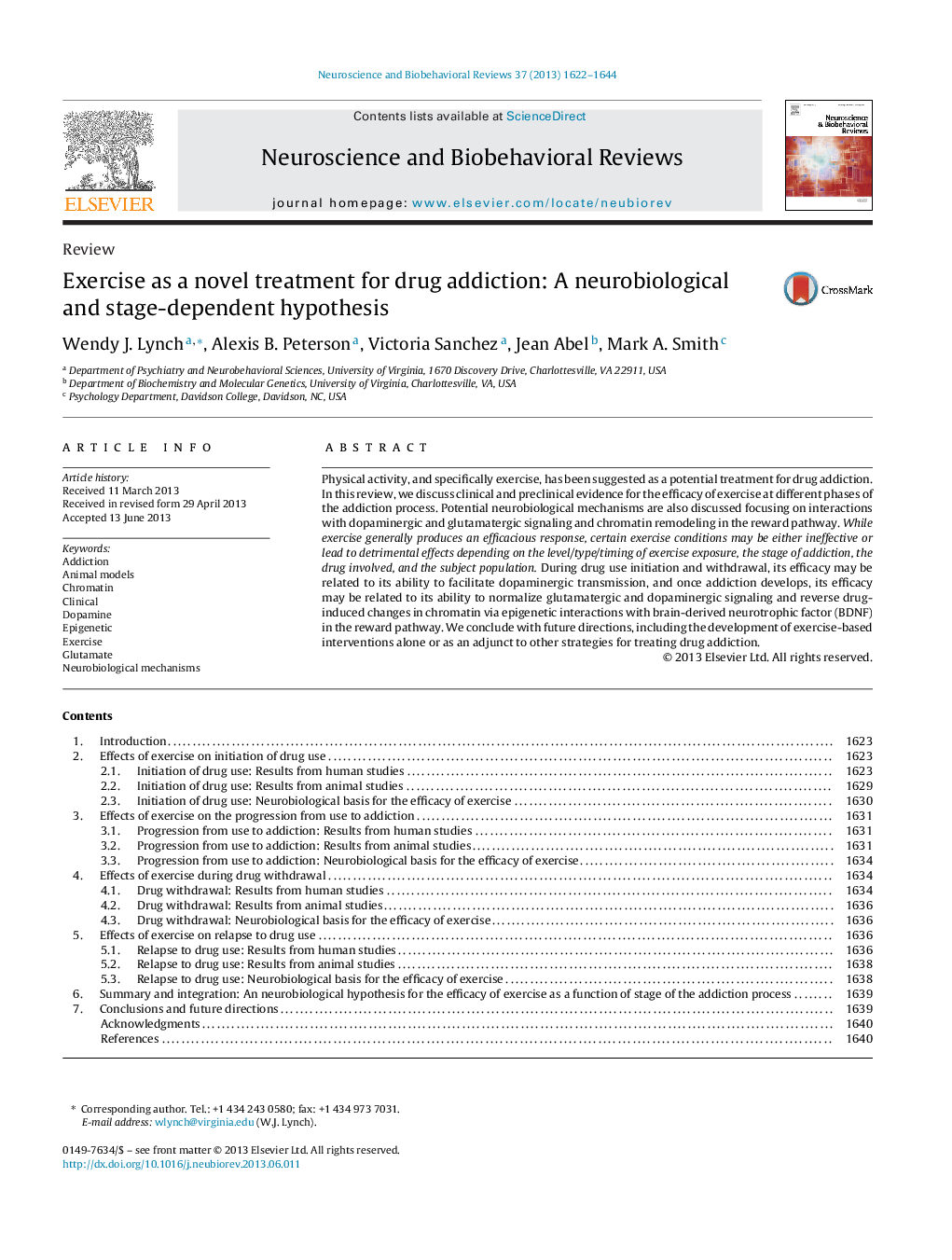| کد مقاله | کد نشریه | سال انتشار | مقاله انگلیسی | نسخه تمام متن |
|---|---|---|---|---|
| 10461761 | 924559 | 2013 | 23 صفحه PDF | دانلود رایگان |
عنوان انگلیسی مقاله ISI
Exercise as a novel treatment for drug addiction: A neurobiological and stage-dependent hypothesis
ترجمه فارسی عنوان
ورزش به عنوان یک درمان جدید برای اعتیاد به مواد مخدر: یک فرضیه عصبی و وابسته به مرحله است
دانلود مقاله + سفارش ترجمه
دانلود مقاله ISI انگلیسی
رایگان برای ایرانیان
کلمات کلیدی
اعتیاد، مدل های حیوانی، کروماتین، بالینی دوپامین، اپی ژنتیک، ورزش، گلوتامات مکانیسمهای عصبی
موضوعات مرتبط
علوم زیستی و بیوفناوری
علم عصب شناسی
علوم اعصاب رفتاری
چکیده انگلیسی
Physical activity, and specifically exercise, has been suggested as a potential treatment for drug addiction. In this review, we discuss clinical and preclinical evidence for the efficacy of exercise at different phases of the addiction process. Potential neurobiological mechanisms are also discussed focusing on interactions with dopaminergic and glutamatergic signaling and chromatin remodeling in the reward pathway. While exercise generally produces an efficacious response, certain exercise conditions may be either ineffective or lead to detrimental effects depending on the level/type/timing of exercise exposure, the stage of addiction, the drug involved, and the subject population. During drug use initiation and withdrawal, its efficacy may be related to its ability to facilitate dopaminergic transmission, and once addiction develops, its efficacy may be related to its ability to normalize glutamatergic and dopaminergic signaling and reverse drug-induced changes in chromatin via epigenetic interactions with brain-derived neurotrophic factor (BDNF) in the reward pathway. We conclude with future directions, including the development of exercise-based interventions alone or as an adjunct to other strategies for treating drug addiction.
ناشر
Database: Elsevier - ScienceDirect (ساینس دایرکت)
Journal: Neuroscience & Biobehavioral Reviews - Volume 37, Issue 8, September 2013, Pages 1622-1644
Journal: Neuroscience & Biobehavioral Reviews - Volume 37, Issue 8, September 2013, Pages 1622-1644
نویسندگان
Wendy J. Lynch, Alexis B. Peterson, Victoria Sanchez, Jean Abel, Mark A. Smith,
